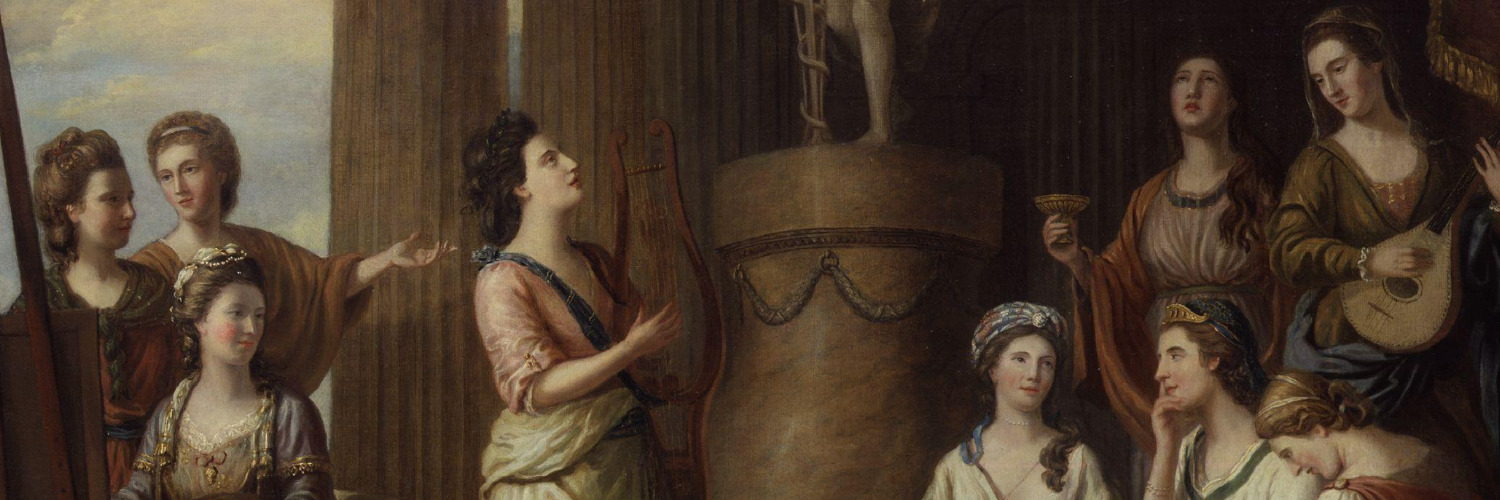- Physical form: One sheet folded into 2 leaves (18.4 x 22.7 cm)
- Cover: Miss Rickards / at Mrs Hunt’s / Crescent / Birmingham
- PM: Penny Post Pd 1d [Ha]mpstead S.O. [twice]
7o’ClockNight SP 8 PENNYPOSTPAID
C S E 8 80[0] - WM: BUTTANSHAW
- SM: Misc MS 4342
Tho I hope so soon to see you again I cannot, especially as you desire another letter, deny myself the pleasure of writing to you once more[.] We returned from Norfolk last Tuesday the 26th, & after having spent a couple of days at Newington,
& one at Low Layton with Mrs Gregory,
returned hither. Willing still to enjoy the fine weather, we went last Thursday to Richmond, & in order to improve the time of your absence, & because also (to let you into a secret) I find Hampstead dull without you, we are going to Dorking
on Monday next, & shall return when you do, within a day more or less. I spent a day since I wrote to you with a farmer who was in the middle of his harvest. It was an interesting sight, fifteen or sixteen men, grasping the sickle, & taking as
even
[fol 1v] even & measured strokes as if they had been regulated by music, others setting up, & binding the sheaves—the children of the family playing about in high delight, & the gleaners eagerly treading on the heels of the harvest men—all these presented un tableau bien riant, & tho I could not absolutely discern any Lavinias among the gleaners, the master of the farm was a very respectable Palemon
—I saw Mlle Julien at Norwich;
Mrs John Taylor
is very fond of her. We found most of our friends at Diss & Palgrave
much as we left them last. Indeed you will think it is a part of the country where people remain stationary a good while, when I tell you there are two couple whose ages make above 330. I see by the papers we have lost a lady in good old age, who has been equally distinguished in the splendid circles of fashion & the walks of literature; I mean Mrs Montague.
As an author, she was indeed satisfied with the reputation which her first & only publication procured for her, but her house was long ^the^ resort of whoever was distinguished
in
[fol 2r] in the court or the college; & the wit & charms of her own conversation were surpassed by none of those she entertained—The Hoares
go to Norwich on Wednesday for two months. I met with an anagram at Norwich which I think very curious—
We are watching with anxiety the weather, wh[ich] at this moment seems to preclude the hope of much enjoyment at Dorking, but should it be so we must be content with the glorious summer we have had, & resign ourselves to the approach of winter, as, after having enjoyed the gay season of youth & the vigour of maturer life, the wise man acquiesces in what he cannot prevent, & submits to the deprivations & languour of age. May you my dear Lydia enjoy the appropriate pleasures of every Season of life, & in every season cultivate those Hopes which extend beyond it. Remember us most affly to Mrs Rickards
Your ever affte

